Europe's online source of news, data & analysis for professionals involved in packaged media and new delivery technologies
Columns
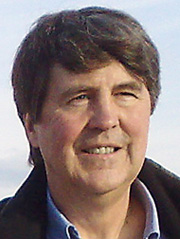
Bob Auger
Bob Auger was Managing Director of top DVD authoring house Electric Switch in London which he co-founded in the 1990s and was closely involved in the launch of the DVD-Video format in 1997. After producing over 400 educational DVDs for the Ohana Foundation in Hawaii, he is now head of DVD consultancy Newmérique. Bob is involved in large-scale projects of video delivery over broadband. He is a specialist on online distribution of media-rich content. Contact: bob@newmerique.com
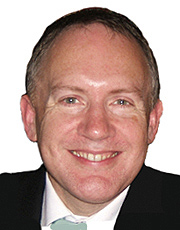
Barry Flynn
Barry Flynn is Principal Consultant at Farncombe Technology, a UK-based TV technology consultancy. Between 1995 and 2000, Barry was a founding member of Informed Sources International, a digital TV consultancy, where he advised a number of blue chip clients. A journalist by training, Barry worked in a variety of television production, direction and systems operation roles at TV companies. Contact: barry.flynn@ftl.co.uk

Sarah Johnson
Sarah Johnson joined Screen Digest in September 2006 as a research analyst focusing on broadband digital media. She is reponsible for monitoring developments in global broadband services. Sarah holds a first class Masters degree in Natural Sciences from Cambridge University. Contact: www.screendigest.com
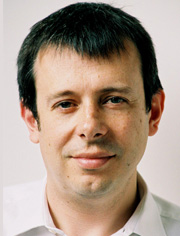
Vincent Letang
Vincent Létang joined Screen Digest in 2005 as a Senior Analyst specialising in television and advertising, focusing on monitoring the impact of technological innovations like high definition TV. Before joining Screen Digest, Vincent work at the National Center for Cinema, and was head of the Media practice in BIPE consulting in Paris for 6 years. In this capacity, he has acted as consultant to a number of high profile clients including Lagardere, European Commission, Globecast, Sony, France Televisions. He holds a masters degree in Economics from Dauphine University, and graduated from HEC Business School, in Paris. Contact: www.screendigest.com

Jean-Luc Renaud
Swiss-born Dr Jean-Luc Renaud has been involved in various aspects of the film, TV, and new media industry for over 25 years. He studied and taught at US and European universities. Co-author of The Future of the European Audiovisual Industry, he was a senior consultant with the UK's IT consultancy Logica. Jean-Luc founded Globalcom Ltd. In 1991, launched the Advanced Television Markets newsletter, then DVD Intelligence that became a website in 2002. He also launched and publish the annual DVD and Beyond magazine. Now a BAFTA member, Jean-Luc oversees www.dvd-intelligence.com. Contact: jean-luc@dvd-intelligence.com
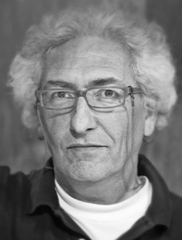
Timmy Treu
Timmy Treu has been in the video industry since the inception of VHS (the ‘70’s). He has seen the format war with Beta and V2000, the transition to DVD, the launch of HD Video (with its war!), all this while managing Warner Home Video’s operations in Austria, South America, Southern Europe to finally settling in Italy as President of WHV Italy. Prior to finally becoming an independent consultant he served also as Vice-President for Pozzoli Spa, the special entertainment packaging company. In Timmy’s earliest years, he was a photographer and has degrees in Law and Theroretical Physics. Contact: timmy.treu@yahoo.com

Klaus Oestreicher
Now a Professor of Marketing at the University of Worcester in the UK, Klaus benefited from more than 20 years in line management before founding the International Strategic Consultants Agency. He is a Chartered Marketer, a Member of the Chartered Institute of Marketing, a Member of the Chartered Institute of Public Relations UK and a member of The Society of Industry Leaders USA. Prior to establishing the International Strategic Consultants Agency, Klaus was Director Business Development and Marketing with group responsibility at CDA Datenträger Albrechts, Germany. Earlier, he was Senior Head of Customer Services Germany, France, and Benelux at Deluxe Video (Media). Contact: Klaus_Oestreicher@web.de
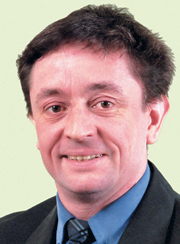
David Mercer
David Mercer, Vice President and Principal Analyst at Strategy Analytics, has 17 years' experience in analysis and consulting in the digital consumer, broadband and media industries. He currently focuses on strategic issues relating to the impact of digital convergence on consumer markets, emerging entertainment services and applications in interactive digital television and broadband Internet. David joined Strategy Analytics in January 1997, after a period of freelance consulting and writing. He previously spent a year at the specialist research firm, Understanding and Solutions. David graduated from Reading University in the UK in 1987 with a BA (Hons) in Linguistic Science. Contact: DMercer@strategyanalytics.com

Marie Bloomfield
Marie Bloomfield is an Analyst in the broadband media team. She tracks developments in broadband content markets, connected devices, and the evolving relationship between physical and digital entertainment businesses. Marie was formerly a member of Screen Digest's video department, where she was responsible for research and analysis across the European video market and assessing emerging trends. She has been involved in consulting to many of Screen Digest's key clients. Marie graduated from the University of Surrey in 2004 with a BA Honours degree in English and Film. Contact: www.screendigest.com

Tom Morrod
Tom is the senior analyst for TV and broadcast technology at Screen Digest. He has developed the TV Technology Intelligence service and is responsible for all related projects focused on the technology value chain. Prior to joining Screen Digest, Tom has worked in content acquisitions and television rights distribution, and in independent theatre. He holds a BA Honours in Economics from the University of Nottingham and an MA in Creative and Media Enterprise from the University of Warwick. Contact: www.screendigest.com
Prospects for 3D in the home

There has been a lot of hype about 3D TV. But the industry getting behind a broad realm of technologies is a far cry from a monetisable mass market. Fundamentally, 3D is complex, more so than HD as technology and ecosystem. Screen Digest' TOM MORROD examines the issue.
This complexity will be reflected in uptake of 3D. It is often said that 3D is easier for consumers to 'see' than HD, thus driving true demand. But it can be countered that a market is not just about demand. It is about supply, price and information - all in questionable quantities.
Supply is a big piece of the puzzle and crucially, like HD, 3D is an ecosystem. It is certainly about the TV receiver, polarised or active switching; the glasses (easily forgotten but not necessarily 'in the box'). But it also takes in the decoding device - set-top box, games console or BD player; the distribution medium (broadcast/unicast), games console or 3D BD; the content and the process of capture, editing and contribution, including broadcasting infrastructure when not printed to disc.
Only about 20 per cent of broadcaster equipment is HD, 30 per cent of TV screens and less than that of set-top boxes. We are still in a very early stage of actual upgrade across the HD ecosystem. And while the HD infrastructure across broadcasters and operators can be used to transmit lower resolution 3D to some existing HD PVRs, all those TV screens will need replacing.
Price is a murky issue spanning both consumer and professional equipment. Many of the early announced prices for 3D TV sets are considerable inflations on similar non-3D TVs. This is especially true for passive polarised, where more technology is built into the display. However, active switching, offering screens at similar prices to non-3D displays, have a hidden cost: the glasses may cost up to $150 a pair, a major consumer cost.... Read More...



















